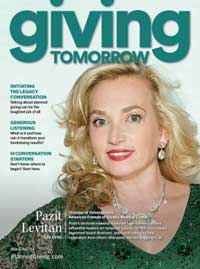How to Talk to Wealthy People
Without Sounding Desperate, Awkward, or Clueless
What they think. How they give. And why your current strategy probably isn’t working.
“The only IQ test in life is if you get what you want in life.”
— Private philanthropist, $15M+ net worth
Let’s Get Real
Every fundraiser dreams of the moment: the handshake, the check, the naming rights. Reality check? Your best planned giving prospects aren’t sipping champagne on private jets. They’re regular people with deep values, not deep wallets.
But that doesn’t mean the wealthy don’t belong in your strategy — they do. The problem is, most fundraisers either fear them, misunderstand them, or worse… don’t like them.
Survey says: Nearly 60% of nonprofit professionals admit to being intimidated by wealthy people, and many are uncomfortable discussing money at all.
(Source: internal sector survey, 2024)
It’s time to rethink how you approach major donors — especially the ones who think differently.
1. Meet Face-to-Face
Don’t hide behind email. Don’t “circle back” for three months. Get the meeting.
Rich people didn’t get where they are by avoiding boldness. Be politely persistent, and get in the room. That’s where the real conversations — and commitments — happen.
2. Listen More Than You Speak
“If they can’t ask me for money, how the hell are they going to manage it once I give it to them?”
— Investor, frequent seven-figure donor
Jerold Panas said fundraisers should talk 25% of the time and listen 75%. Why? Because when you’re quiet, they’ll tell you what matters. And once you know that, you can align their priorities with your mission.
Let them talk. Let them lead. Let them feel like the visionary — because they are.
3. Ask the Right Questions
Use your airtime wisely. Do your homework and ask real questions. Not “What keeps you up at night?” — ask something like:
“I read you were a college athlete. Any stories from those days that still make you smile?”
That ego-laced response? It’s not fluff — it’s your key to a customized pitch. Their identity is your invitation.
4. Think Outside the Pitch Deck
You can list budget needs until you’re blue in the face. It won’t move the needle.
But tie a program to their legacy? Now you’re speaking their language.
“Show me your friends, and I will show you your future.”
— Real estate investor, foundation board member
They want to fund what feels like them. Not a handout — a handshake with meaning.
5. Ask. Then Oversimplify.
True story: A pastor assumed a wealthy congregant would remember the church in her will. He never asked. She didn’t. She gave it all to her husband’s alma mater. Why? Because they asked.
Never assume. Always ask.
And when you ask, don’t get cute with jargon. Forget CRUTs, CRATs, and anything that sounds like a skin disease. Your ask should sound like this:
“Would you consider including us in your estate plan so we can continue this work long after we’re gone?”
Sidebar: What They Really Think
“Why doesn’t academia and higher ed teach how to make money? Because the core value of academia is in degrees — not wealth.”
— Tech entrepreneur, self-made multimillionaire
“We’ve pushed useless degrees for 45 years. We’re lending money to kids who can’t pay it back to prepare them for jobs that don’t exist.”
— Gen Z philanthropist, 2024 Giving Forward interview
Translation? These donors live in the real world. They don’t care about your credentials. They care about your outcomes.
Final Thought: It’s Not About You
You’re not the hero. They are.
Your job is to get out of your own way, build real relationships, and ask with clarity and confidence. Because if you don’t ask…
Someone else will.






